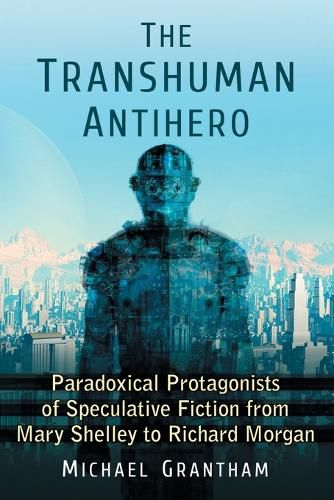Readings Newsletter
Become a Readings Member to make your shopping experience even easier.
Sign in or sign up for free!
You’re not far away from qualifying for FREE standard shipping within Australia
You’ve qualified for FREE standard shipping within Australia
The cart is loading…






This title is printed to order. This book may have been self-published. If so, we cannot guarantee the quality of the content. In the main most books will have gone through the editing process however some may not. We therefore suggest that you be aware of this before ordering this book. If in doubt check either the author or publisher’s details as we are unable to accept any returns unless they are faulty. Please contact us if you have any questions.
Advances in science and technology no longer change how we live, they determine it. In the not-too-distant future, techno-scientific developments may make individuals stronger, smarter, healthier and more productive-but to what end? Addressing this question, speculative fiction has created an abundance of transhuman characters, protagonists with extraordinary strength, intelligence or abilities. Often they are antiheroes, openly rejecting-or rejected by-society and acting on immoral or extreme principles that challenge readers to approve, condemn, excuse or explain.
This study explores the antihero of speculative fiction as a paradoxical blend of human and transhuman. These protagonists illustrate the dynamics among the individual, techno-scientific development and societal norms, and blur distinctions between human and machine, biology and technology, right and wrong. Fictional works covered include Mary Shelley’s Frankenstein (1818), Olaf Stapledon’s Odd John (1935), Alfred Bester’s The Stars My Destination (1956), William Gibson’s Neuromancer (1986), Alan Moore and Dave Gibbons’ Watchmen (1986-1987), Richard Morgan’s Takeshi Kovacs trilogy (Altered Carbon [2002], Broken Angels [2003] and Woken Furies [2005]) and Black Man (2008).
$9.00 standard shipping within Australia
FREE standard shipping within Australia for orders over $100.00
Express & International shipping calculated at checkout
This title is printed to order. This book may have been self-published. If so, we cannot guarantee the quality of the content. In the main most books will have gone through the editing process however some may not. We therefore suggest that you be aware of this before ordering this book. If in doubt check either the author or publisher’s details as we are unable to accept any returns unless they are faulty. Please contact us if you have any questions.
Advances in science and technology no longer change how we live, they determine it. In the not-too-distant future, techno-scientific developments may make individuals stronger, smarter, healthier and more productive-but to what end? Addressing this question, speculative fiction has created an abundance of transhuman characters, protagonists with extraordinary strength, intelligence or abilities. Often they are antiheroes, openly rejecting-or rejected by-society and acting on immoral or extreme principles that challenge readers to approve, condemn, excuse or explain.
This study explores the antihero of speculative fiction as a paradoxical blend of human and transhuman. These protagonists illustrate the dynamics among the individual, techno-scientific development and societal norms, and blur distinctions between human and machine, biology and technology, right and wrong. Fictional works covered include Mary Shelley’s Frankenstein (1818), Olaf Stapledon’s Odd John (1935), Alfred Bester’s The Stars My Destination (1956), William Gibson’s Neuromancer (1986), Alan Moore and Dave Gibbons’ Watchmen (1986-1987), Richard Morgan’s Takeshi Kovacs trilogy (Altered Carbon [2002], Broken Angels [2003] and Woken Furies [2005]) and Black Man (2008).